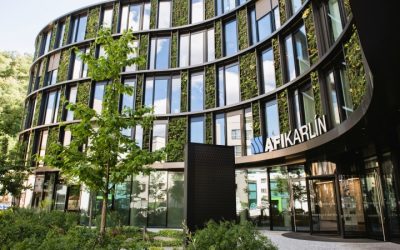Jan Kubíček says that during the Covid-19 pandemic, retail Czech shopping mall owners benefited from a decade of cooperation and sharing information through the International Council of Shopping Centers (ICSC). The current crisis is presenting quite different challenges, says Kubíček, now Executive Committee Chair of the Czech Council of Shopping Centers.
You were asked to chair the Czech ICSC committee in 2009, but you were reluctant to take on the position. What was holding you back?
The problem on the Czech market was that people didn’t want to . . .
------------------------------------------------------------------------------
Subscriber content
Archival content is available to subscribers only. If you have a membership subscription and are are experiencing issues logging in, please try the login below:
If you're interested in reading further, why not gain full access to the archives by subscribing?
Order your subscription here and we'll send you an invoice.
Annual memberships (€100/yr) can also be paid for by credit card, or you can pay month-to-month by clicking here.






